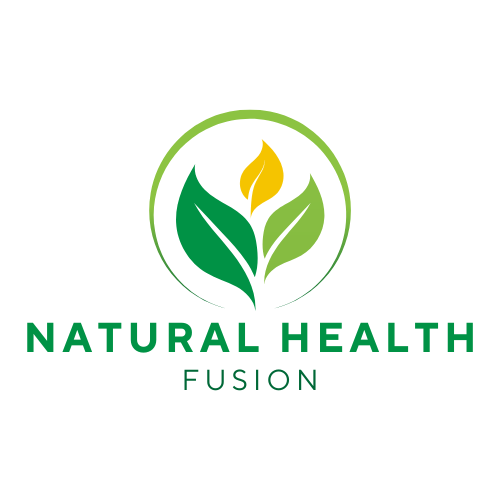
Understanding Mental Health: A Guide to Awareness and Support
In today’s fast-paced, digitally driven world, mental health is more relevant than ever. While society has made significant strides in recognizing its importance, many people still struggle with awareness of what actual mental health is and how to promote it effectively. At Natural Health Fusion, we believe in a holistic—the same approach that nurturing the mind as the body takes 🙂 This guide will help you gain clarity, build awareness, and discover supportive strategies for sustaining long-term mental well-being.
What Is Mental Health, Really?
Mental health is not just the absence of mental illness—it’s a dynamic state of emotional, psychological, and social well-being. It impacts how we think, feel, and behave, how we handle change, stress, interact with others, and make choices. Just like physical health, it will change based on genetics, environment, lifestyle, and life experiences.
Common Misconceptions About Mental Health
Despite growing awareness, myths still cloud the conversation. Here are a few worth debunking:
“In fact about one in five adults in the United States has a mental health condition every year (NAMI 2023).
“It’s a sign of weakness.” Mental health problems have no bearing on strength / willpower / resilience—they are medical conditions, not moral failings.
“Therapy is only for serious issues.” Anyone is able to benefit from therapy or counseling, if they’re just feeling overwhelmed, stuck, or curious about self-growth.
Early Signs to Watch For
Warning Signs of Moodiness You can start with noticing changes in your own behavior, or early warning signs in a loved one. Think of these indicators of the psychological health of others:
– Persistent sadness or irritability
– Social withdrawal
– Excessive worry or fear
– Changes in appetite or sleep
– Lack of motivation or interest in activities
– Difficulty concentrating
– Unexplained physical ailments
Being attentive to these signs—and responding without judgment—can make a meaningful difference.
Supportive Strategies for Everyday Mental Health
Taking care of your mental health does not always require a diagnosis or formal treatment plan. Here are natural, proactive ways to foster emotional resilience and balance:
- Nutritional Psychiatry: Feed Your Mind
What we eat impacts how we feel. Ill-health within the gut is a direct link with mental illness, new research suggests. Diets rich in omega-3s, probiotics, leafy greens, and fermented foods have been shown to be associated with lower levels of depression and anxiety.
Tip: Incorporate whole foods like salmon, walnuts, kimchi, and spinach into your diet to support neurotransmitter function. - Move to Boost Mood
Physical activity stimulates the hormone production of endorphins and serotonin. A 30-minute walk 3–5 times a day per week can significantly reduce symptoms of anxiety and depression. - Practice Mindfulness and Breathwork
Meditation, deep breathing, and yoga *help calm the nervous system, enhance focus, and increase self-awareness.* These practices are widely scientifically accepted to contribute to stress regulation. - Connect with Nature
For one thing, in nature ( with a definite emphasis on green and blue zones ) you can reduce cortisol levels and increase feelings of well being and connection with other people. In Japan ( forest bathing ) is considered to increase mental clarity and emotional well being. - Strengthen Social Ties
Loneliness can make it easier for your mental health to decline, so try to maintain a social life that you’re passionate about and don’t hesitate to reach out to supportive people who can help in difficult times.
If feelings of distress persist for more than two weeks, or impede day-to-day functioning, it’s essential to speak with a qualified mental health professional. Therapy, medication, and integrative treatments (like acupuncture or herbal support) can work synergistically when guided by experts.
Holistic therapists and functional medicine practitioners can also help to find the causal factors, such as inflammation, nutritional deficiencies, or trauma, that may be affecting your mental well-being.
Scientific Insights: The Brain-Gut Connection and Inflammation
The Microbiome and Mood
Recent studies have shown the importance of the gut-brain axis (a sophisticated communication network linking the gut microbiota with the central nervous system. In 2022, a review was published in Frontiers in Psychiatry; individuals with depression often show reduced microbial diversity and altered gut flora composition.
Strains like Lactobacillus rhamnosus and Bifidobacterium longum have been linked to improved mood and decreased anxiety in animal and human trials, as proposed by a field known as psychobiotics.
Neuroinflammation and Mental Illness
Inflammation doesn’t just affect the body—it can impact the brain as well. Elevated inflammatory markers such as C-reactive protein (CRP) and interleukin-6 (IL-6) have been associated with major depression and cognitive decline.
A 2023 study in Nature Reviews Neuroscience emphasizes the role of chronic low-grade inflammation in disrupting neurotransmitter pathways and promoting oxidative stress. Anti-inflammatory diets and supplements (like curcumin, green tea extract, and omega-3s) may support emotional regulation and cognitive function.
Final Thoughts: You’re Not Alone
Mental health is a journey—not a destination. Whether you’re navigating stress, emotional trauma, or simply want to be more mentally fit, you can find support and healing that you can. If you start from a natural, informed, and compassionate mindset, you can—you need to care for your mental health like you care for your physical.
At Natural Health Fusion, we’re committed to helping you thrive—mind, body, and spirit.
